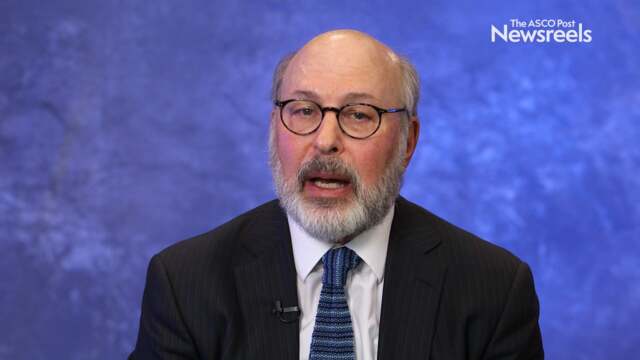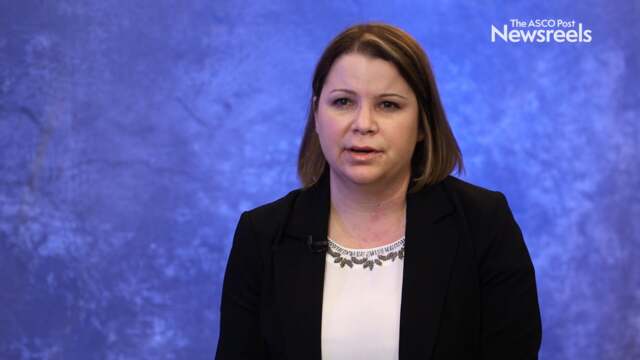Sherry Shen, MD, on Breast Cancer and Obesity: Results of the SWOG S0927 Study
2018 ASCO Annual Meeting
Sherry Shen, MD, of Columbia University Medical Center, discusses findings on the use of omega-3 fatty acid for obese breast cancer patients with aromatase inhibitor–related arthralgia (Abstract 10000).
Howard S. Hochster, MD, of Rutgers-Cancer Institute of New Jersey, discusses study findings on irinotecan and cetuximab vs irinotecan, cetuximab, and ramucirumab as second-line therapy of advanced colorectal cancer following oxaliplatin and bevacizumab-based therapy (Abstract 3504).
Ryan D. Nipp, MD, of Massachusetts General Hospital, discusses study findings on electronic symptom monitoring vs usual care to assess whether the intervention, tested in hospitalized patients with advanced cancer, can improve symptom burden and reduce the risk of readmission (Abstract 10005).
Allen S. Lichter, MD, ASCO’s former Chief Executive Officer, talks with Nancy E. Davidson, MD, of Fred Hutchinson Cancer Research Center, the 2018 recipient of the Visionary Leader Award, named for Dr. Lichter.
Juliet Elizabeth Wolford, MD, on Ovarian Cancer: The Cost of Care
Juliet Elizabeth Wolford, MD, of the University of California, Irvine, discusses the cost-effectiveness of various types of maintenance therapy in advanced ovarian cancer: paclitaxel, bevacizumab, niraparib, rucaparib, olaparib, and pembrolizumab (Abstract 5508).
Gianni Bisogno, MD, of the University Hospital of Padova, discusses study findings on maintenance low-dose chemotherapy in patients with high-risk rhabdomyosarcoma (Abstract LBA2).





